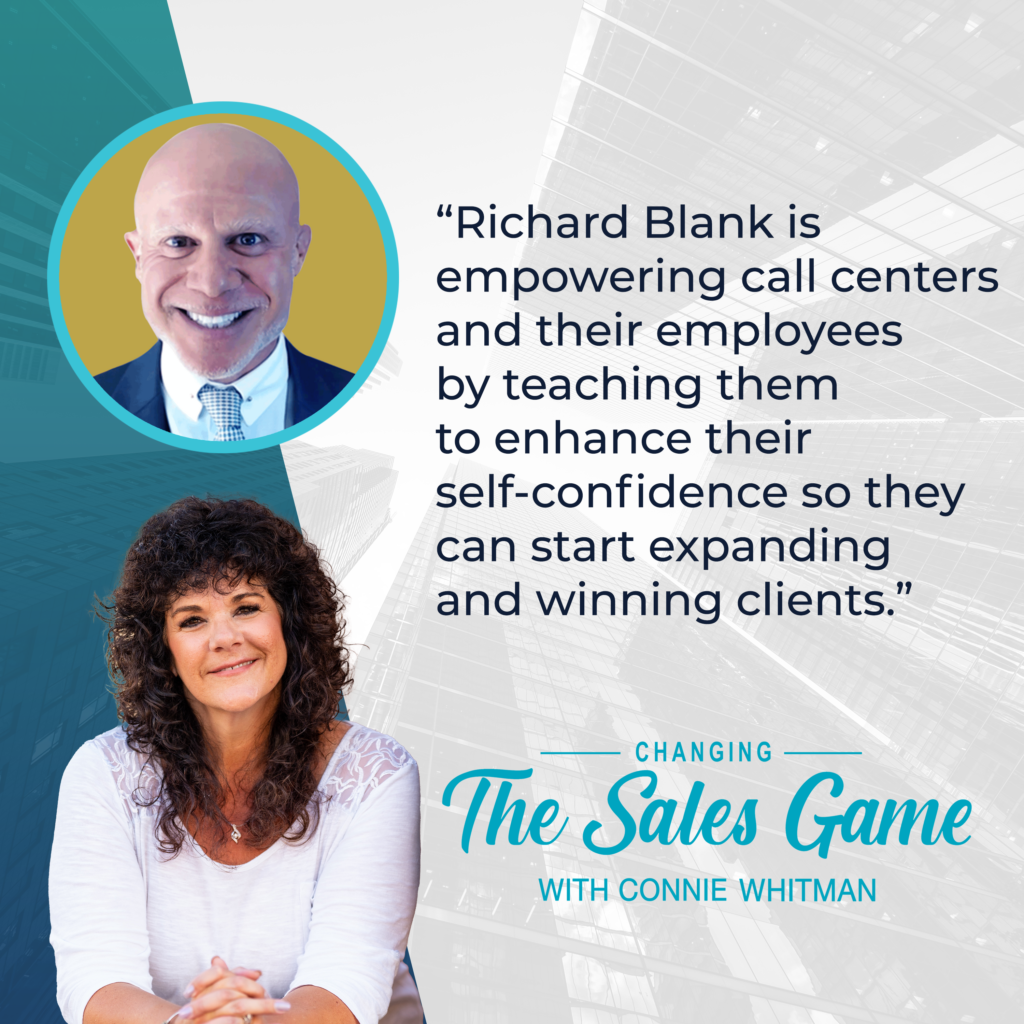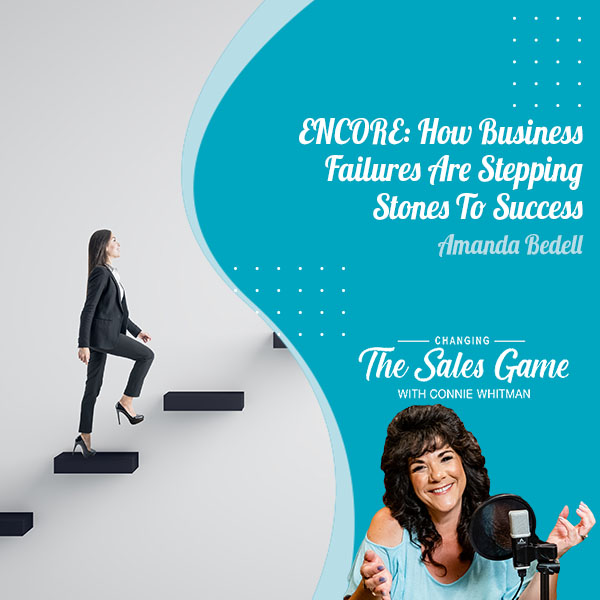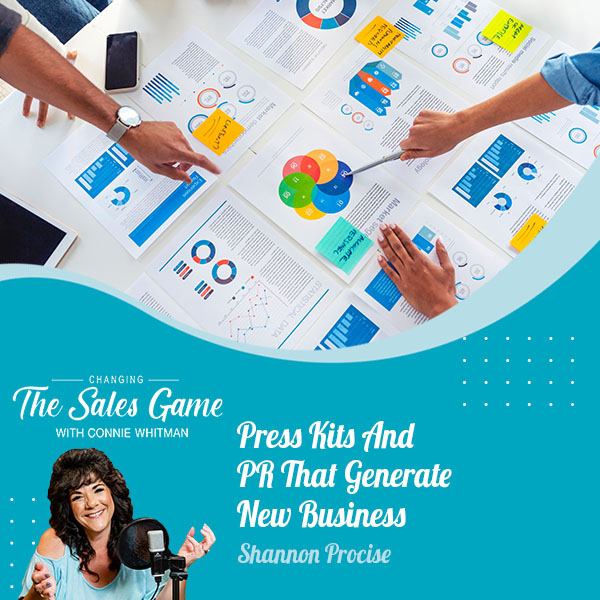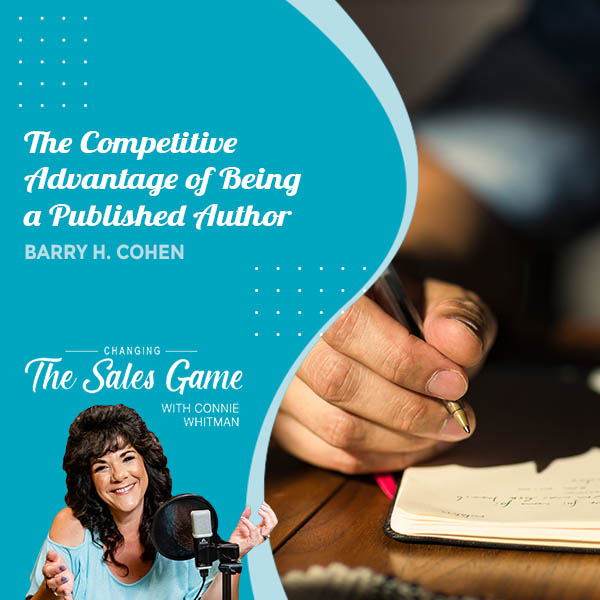If you’re competitor-focused, you have to wait until there is a competitor doing something. Being customer-focused allows you to be pioneering.Jeff Bezos
Check Out These Highlights:
I love speaking about sales and communicating effectively with our prospects and clients. Of course, there is another side to sales which is sales support. Often that support comes through back-office staff and call center folks.
I believe we really do need a team of people to be able to stay on top of all the new technology, real client engagement, and providing deliverables as promised.
So how do we build behind-the-scenes support? Glad you asked!
Customer-Focused Teams Win Client’s Business with Richard Blank (EP. 105)
I hope you feel my passion for the word sales and that vibe that’s out there of this icky, sleazy perspective. It’s wrong. I want you to start to think about sales coming from a place of love, care, and respect. That’s what the show is about. I hope between my guests and me, the little ideas, tips, strategies, and things that we share on the show that you could take and implement into your life, career, and business, whatever it might be.
If you’re loving the show, please subscribe so you don’t miss an episode. If you rate and review, I love reading your comments. They do mean a lot to me. I want to make sure this show is relevant for you and your life, business, and career. My motivational quote is by Jeff Bezos. He says, “If you’re competitor-focused, you have to wait until there’s a competitor doing something. Being customer-focused allows you to be pioneering.”
I love speaking about sales, it’s my jam, and communicating effectively with our prospects, clients, etc. There’s another side to sales, which is the wholesale support piece. Often, that support comes through, whether it’s back-office personnel, call center folks, or other people that we need to make sure that we’re delivering what we said we are going to deliver. Now, I believe that we need a team of people to be able to stay on top of all of the new technology, that real live dynamic client engagement, and make those deliverables meet our expectations of what we’ve promised.
How do we build that behind-the-scenes support? I’m glad you asked, and I have an amazing guest. He’s cool, young, and my kind of guy. His name is Richard Blank. Richard’s journey in the call center space is filled with a bunch of twists and turns. When he was 27 years old, he relocated to Costa Rica to train employees for one of the larger call centers in San Jose. With a mix of motivational public speaking styles backed by tactful and appropriate rhetoric, Richard shares his knowledge and trained over 10,000 bilingual telemarketers.
Richard has the largest collection of restored American pinball machines and antique cola jukeboxes in Central America, making gamification a strong part of his corporate culture. Richard is the Chief Executive Officer of Costa Rica’s Call Center since 2008. He holds a Bachelor’s Degree in Communications and Spanish from the University of Arizona and a Certificate of Language Proficiency from the University of Seville, Spain. Richard, thank you so much for being on and sharing your zone of genius with us.
About Richard Blank
Richard’s journey in the call center space is filled with twists and turns. When he was 27 years old, he relocated to Costa Rica to train employees for one of the larger call centers in San Jose. With a mix of motivational public speaking styles backed by tactful and appropriate rhetoric, Richard shared his knowledge and trained over 10,000 bilingual telemarketers.Richard Blank has the largest collection of restored American Pinball machines and antique Rockola Jukeboxes in Central America making gamification a strong part of CCC culture.
Richard has been the Chief Executive Officer of Costa Rica’s Call Center since 2008. He holds a bachelor’s degree in Communication and Spanish from the University of Arizona and a certificate of language proficiency from the University of Sevilla, Spain.
How to Get in Touch With Richard Blank:
- Website: Costa Rica Call Center
- Email: ceo@costaricacallcenter.com
Starting A Company From Scratch
I’m happy to be here. I love your show. Your audience is amazing. I’m going to assist in changing the sales game and making it even better.
What we’re here for is to help people move the needle on whatever their journey is or wherever they are in their journey. Talk to me first about the idea of moving abroad at starting a company from scratch in Costa Rica. How did that even come to be?
Growing up in Northeast Philadelphia, you know how it is during those winter times. 1) You are dreaming of sunny beaches. 2) There are always these opinions that are provided for you and expectations in regards to going to law school and medical school. My favorite class at Abington High School was Spanish. I doubled down on it.
I went to the University of Arizona with a Spanish Communication major. I wanted to make myself marketable. Knowing a second language could open doors. Little did I know at 27, I had 1 in 1 million opportunities to move abroad. I worked at my friend’s center for four years. I learned the business from the inside and out, not C-level. I got to sit in the cubicles with the Ticos. I got to break bread with them.
You hear the good and the bad. You also got to see areas in which you can enrich the experience for not only the clients but for the agent and proletariat. I knew that when it was time for me to start my own business, and I did it in my mid-30s. I will admit something to you. I needed to have some more maturity in impulse control and some finances. I did know this, and this is what I read most about you.
What I felt comfortable with is it’s the foundation of the people. It’s giving them their dignity. It’s showing empathy towards them. I’m not going to hit the ball and drag Johnny. I want you to succeed. I’m not going to break you. I want to see what comes best out of you. For those that work with me here, I always try to enhance their self-reliance and self-confidence so then they can start expanding and be a lot more expressive over the phone.
You’re over the phone. You’re losing body language. Your energy, approach, tone of voice, and all of those that you have to be super engaged to be able for that, to come through that element of care and respect that the client should feel on the other end of the phone.
The Human Component Of Business
The other thing I find fascinating is the human component in business, and I don’t care what the business is it doesn’t matter, matters.
Yet we think we go in, we can demand, scream, and yell in this hard-nosed kind of leadership. It sucks and it doesn’t work. Why is it even still around? We all know the answer to that because egos are egos and people in those “power” think they have power, but they don’t, especially, have power over humans. Let’s hope that people feel that way. You went to Costa Rica and worked for your friend.
I was able to learn retention, customer support, sales onboarding, human resources, and affiliate marketing. You were mentioning the power that these individuals have might just try to break some of those misconceptions of the CEO. They don’t have any power. The individuals can always quit. If nobody shows up for your Chuck E. Cheese birthday party, you have no friends. As much as you want to curse and threaten people, they have options. It’s a seller’s market.
What I want to do is to put fear into perspective. For any fear, I’m going to let them know that learning a second language is ten times harder than any project I’m going to put them on. Secondly, I’m going to reduce any fear by giving you all the resources that you need. There are no surprises. You’ll have your script and rebuttals. I’ll give you the list, the CRM, and the phone system. We also do some role-playing.
This is my favorite part. You are mentioning structure over the phone earlier. It’s fascinating because in my mind, physically, when you’re looking at somebody, there is congruence where audio matches the visual sometimes people can wear a mask, either the clothes they wear or the facial expressions of their body language over the phone. I believe it’s a much more pure form of speech.
If you were mentioning active listening, we could use this for manipulation purposes. You are reducing three of your senses, taste, touch, and smell. Those don’t even work. You’re expanding because scientists claim that your senses expand if others are removed. You are in a controlled environment sitting in a cubicle. I do believe that by listening, you should be hearing things in the background to have in common or to adjust the tone.
Visually, I always believe books are better than movies. There are imagination and adjectives. You can expand your vocabulary. There are certain ways to capture what you’re trying to explain to somebody or close your eyes and imagine growing with a client and they can understand that too. Finally, if I may, I do suggest using that source because you can expand on your similes. The greatest rhetoric would be diplomatic and with structure. For example, instead of using words like help, I’m not going to help Connie. I’m always going to assist Connie. I would love to guide Connie. I’m always there to lend a hand to my friend Connie. That’s number one.
Number two, I’m never going to say, “Excuse me, what did you say?” For my clarification or edification, these are small swords. When I can follow up on that you’re right or I’m wrong, it’s a way to maintain the tone and momentum of the call, avoiding any rabbit holes. How about this one? You got a great name, easy to pronounce, the same as mine. Imagine if you speak to someone with an exotic name. There’s nothing wrong with the military alphabet. It’s not insulting. It is fact, quite a compliment.
Emails won’t kick back. You might be the first 1 out of 20 people that can say this very unique, beautifully phonetically sounding name a certain way. These are the anchors that, instead of selling, we can focus on those soft skills that we have with these individuals. Once you reduce any ego defense and resistance, then you could almost stutter, repeat, or mash up your performance and the guy will still buy because they love you.
Using names at a certain time for transitional sentences or for tie downs, focusing on trigger words like personal pronouns and where you could say your and our to capture attention because it’s non-visual. These are the advanced telemarketing soft skills that we can do to give you a balance-centered focus so, at least every call, you’re exceptionally engaged. You almost make it more like a painting than a print because you could still be spontaneous. You can still think of things off the cuff. That’s what makes every single phone call unique.

It’s How You Respond, Educate, And Listen
When I teach the sales stuff, your solution for the client that’s in front of you has to be customized because no two people’s situation is exactly the same. What you’re describing by taking those soft skills and refining how you’re approaching the client and using all of those senses, especially the tone of voice and the vocabulary, the word choices. We can dig in and customize what that customer needs from us right then and right there. Not only that, but if the call center agent is good, they can almost anticipate through that conversation, “How can I be a planning partner? How can our organization be a planning partner for whatever the next thing in that person’s life or situation that might come from this conversation?”
Everything should be customizable and personal. If they reject or they get nasty with us because they have a bad situation or whatever’s going on in their life, you don’t take that personally. People call it rejection. It’s not rejection. They’re just responding to the situation. It’s how you respond, educate, and listen. Humans’ attention span is down to six seconds. That’s horrible. We have to be engaged and present. We forget to do that. Being on the phone, we have to be hypersensitive to that.
Why don’t we ask more open-ended questions? Let me learn more about you and then we can keep raking things. After you’ve explained things, why don’t I repeat to you to show that I heard it so we don’t have to do this again? A lot of times, people repeat. If you can do checkoff lists, recap, and take it from horizontal to verticals and start stacking, knowing that’s B, C, and D, you’ll get to it, but why rush?
There was a show back in the day called Get Smart where it showed the secret agent walking down that hallway and doors were closing behind them. The greatest thing we could do is to close every door. Don’t leave one open because, after fifteen minutes, you’re not going to get the sale because you forgot one. There’s no rush. I also believe in pacing. You were mentioning tone of voice. My suggestion would be to have a confident and empathetic tone. That would be the consistent variable. I know that you were mentioning that people talk about mirror imaging techniques. We can do that through body language.
Phonetically, in my opinion, would not to match their tone unless they match confidence and empathy. You should match their rate of speech and their speaking levels with the cellphone or grandma. A fast talker or slow talker is fine, so be it. If there’s any crosstalk or interruption, that is either a positive or negative reinforcement for you to know that I’m stepping on your toes because you’re still leading the stance. We’re still dancing. It’s an excellent gauge for you to adjust yourself.
When these people are pacing themselves, that’s when you’ll know to interject to do the tie-down question, the follow-up, clarification, open-ended and you are mentioning attention span. That’s why you got the best show. You are on top of everything. I always believe it’s more than 30 seconds to 2 minutes. Let’s think of it like this, drinking, biting, breathing, and thinking. Let’s all do bites, sips, and breaths.
The information can be digested the same way we call it desert pitching where somebody talks for five minutes. There’s no oasis, rest, or water. What? Are you afraid they’re going to hang up? they’ll hang up anyway. You might as well divide and conquer and do smaller piles like Bruce Lee when he walked into the dojo. He beat up everybody. He did a couple of double shots, but usually, it’s one at a time.
If I can slice your 10-minute conversation into the ten 1-minute segments, that can get expanded through pauses and back-and-forth. It’s a very good chance I can beat that and carry that. You need to be in the now because that’s where the balance is. In the future, you’re going to stumble in the past you’ll be recapping, but in the now, you’ll be able to know how they are speaking then. It’s easier said than done. It’s almost like when people practice lucid dreaming. They need to do certain things to be able to connect during the REM stages.
I believe that during certain stages, there are ways besides pricking or reminding yourself like inception with a ring that you’re in reality. I always believe that while you are speaking, the greatest thing for me to do is breathing techniques because that’s what boxers and athletes say. The number one thing is breathing. While Connie’s talking, “I’ll bring it in for 4, hold for 4, and out for 4,” I’m still listening and planning my stuff, but it’s reducing and giving me recharge. It’s amazing what that breathing will do to somebody to give you more composure. I’ve seen that.
Self-improvement is from self-analysis. Share on X
I loved what you said, and I’m going to pull a big nugget out of this. You’re having this ten-minute conversation, which usually they’re probably at a call center, 5 to 10 minutes, you’re in and out because you do have calls in the queue. Even with the call center, if you have that 10-minute conversation, I love how you said to break it into ten 1-minute conversations because here’s the thing. When you start to peel back that onion, you’re digging a little deeper. You’re getting to whatever the situation is, good or bad, problem or not, faster.
I say in my world, open-ended questions are like a magic wand. If we can ask those open-ended questions, you get that person speaking. You’re understanding what’s going on in their world and situation. I could better respond and help because I understand what the situation is. That’s those active listening comes with asking those questions. I can have the best questions on Earth prepared and usable, and I’m good at it, but I don’t listen for anything.
You’re never going to be able to service that client at the highest level and you said it before. Even if you stutter or make a mistake but they know that you know your stuff and you’re respectful and showing up for them, they’ll have the patience back for you because you asked the questions. You listened and responded to them, not 500 other calls that you had, but you were present for them. A 10-minute conversation breaks into ten 1-minute conversations. I love that little tip. It’s brilliant.
Think of them as trees. How far downs do the roots and branches go? Besides a question, like when you were writing a composition in English class, you had subpoints. The greatest thing to do is ask a second, third, or fourth follow-up question. A great example, you have a dog barking in the background. It happens when people are at home. I love dogs.
Passive-aggressively and inadvertently, I’m letting you know, “Put the dog outside,” but then I’ll say, “What’s the dog’s name?” You’ll say, “Jersey.” I go, “Great. What kind of dog is it?” You’ll tell me that sort of dog, “How old is she?” Even though it’s not selling, it is because, for three minutes, we’re talking about your amazing dog. I was polite about you putting it outside, you come back, and then once again, we’re that much closer.
Now we’re doing foul shot percentages compared to three-point percentages because you and I spoke about your dog. I believe in positive escalations. At call centers, when people ask to speak to our supervisor, it’s usually negative, but if it’s positive and they get a compliment, there are prizes and money that go with it.
Also, on the flip side, if I call a company and somebody assists me prior to transferring the call to you, I’m going to let them know they were amazing. I’ll let you know how amazing they are verbally. I’ll do it in writing. I’ve seen that that has separated me from dozens because when I call your company back and your assistant answers, not only do they remember me, I can tell you from the years I’ve been making these calls, most people say, “You’re the first person in six years that have said that about me.”
“By the way, Connie’s extension is this. Her birthday’s on Thursday. She loves the color blue.” They start telling me 1,000 things about your company. When I get you on the phone, it’s, “Happy birthday, Connie. You’re getting a blue cake. By the way, your assistant is the greatest ever,” then you’re going to say, “That’s my daughter. She’s been with me forever. She’s my confidant.” It’s a happy Richard circle where everyone likes everybody. If I get transferred around your company, even better. I’ll speak to Billy in the mail room. I’ll talk to Tony in IT and then, you’ll be like, “How’d you get in touch with these guys?”
The next thing you know I’m making nice before any contracts are signed. That shows the good faith that somebody has. I’m not a one-and-done. I expect to get a hero’s welcome when I come to visit you because of all these people I’ve spoken to prior to even working with you. That’s what makes these calls much easier because you can be your real self. You don’t need to press something or get out of character where you’re uncomfortable. You can still go home and tell your mother what you do for a living.

It’s All About Respect
Everything you said for me is all about respect. It’s respecting the other person, whatever the situation is, wherever they are in their day, or whatever the problem is. It’s respecting them from the human component. We have lost that element of respect. The way I sometimes see people and organizations talk at each other, I scratched my head, thinking, “I wouldn’t have handled it that way. I’m not perfect.” There was a little bit of condescension or disrespect in the tone.
You’re having a bad day, but that doesn’t mean the employee has to hear the end of it or that you should defer that negative energy or whatever’s going on to the client. In the call center, it’s even more important that we have that tonality, empathy, and all of those things. I like how you use that because we can sound empathetic in our conversational tone. The word for me is that as you’re speaking, it’s all about respect. Sometimes we forget. I don’t know.
I’ve had to make mention to clients that their overzealous supervisors in New York, their tone, profanity, and how they like to write in maybe a bold cap or something might not be received well here and could be even misinterpreted. Don’t write in red. Don’t curse. That’s how we do it at home court, but you’re not home court. You’re talking about respecting other cultures. That’s number one.
Also, I believe that self-improvement is from self-analysis. In my center, we have the luxury of the infrastructure of a quality control department. The agents can not only listen to their calls, but we can professionally grade them through KPIs. Even if you don’t work at a call center, any vertical or industry, you can still record your phone call and listen to how you spoke.
You will know if you were going too fast, overextended, didn’t speak enough, or if your tone was inappropriate. How about this one? Here’s the best. It’s not even business-related. If you are given the luxury of time, especially in sensitive information like with family or good friends, sometimes don’t give an immediate answer. I believe in sleeping on it, writing a draft, and not sending it because the next day, when I cut the fat and focus on what’s most important, I’ve come back to people, apologize for my tone, realize what’s happening, usually back and forth, not apologies of, “Thank God we’re speaking again and let’s talk about this.”
You might say the marriage, Thanksgiving dinner, or even a client when you are huffy puffy at the moment. You judge character during the chaos. I can handle things at the moment, but if there is not that sense of urgency and I’m allowed to, once again, reconvene, tomorrow is a very good chance with better-level heads. We’ll be able to come together and move forward.
Right now is more of a timeout. That’s a part of maturity as well. Maybe these meetings that you were witnessing of people with that aggressive tone, cursing, or not being very polite or courteous with people could have been avoided. You got to walk that back. Maybe you saw somebody, as you say, on their worst day ever, and then you ask them something work-related and they snap back at you.
Everyone does deserve a second chance. Without prying, you and I can sit down and judge somebody on the 99 times they were great, not just the 1 time they spilled the paint in the garage. It’s okay. I love you for that, to be honest with you because it shows that you’re not perfect. The fact that something happened and we were able to work through it means that we’re much more seaworthy. We’re going to last much longer than a very fragile situation where one minor thing could break and bring it all down. Some of my best relationships are made during those tough phone calls where we have to make it through together.
By taking your time, you're able to retain a client. Share on X
Observation
You said something important. When I teach my manager coaching to coach the employees after they come through my training, the one thing I say to them is, “You have to do observation. If you don’t do observation, you don’t know where the employee’s biggest struggle is or where they’re lacking confidence that you could go in and help them build whatever the skill is.” Usually, skill and confidence are tethered together oftentimes, but it’s through observation.
I say to them, “That doesn’t mean you observe the employee once and say, ‘I could coach them now.’ That’s not real because what if allergy seasons started? What if their allergies were killing them and they were foggy in the head because they started taking their Zyrtec and that was the day you observed them?”
It’s false. Your coaching is going to be off because you only did one observation. Through that conversation, we do have to sometimes sit back and then circle back at a later date if you can, if the time allows, because then you can have better observations and/or your own discernment about what went on during whatever the situation conversation was and how can I best support the client, the employee, or whoever it is.
The other thing I wanted to mention too is the call center. You have the availability for the employee to hear and point out to them. You see your tone of voice and hear how it shifted. I felt your frustration there. Did you feel your frustration? Your client felt frustration. Did you see how they responded? Telling someone what they’re doing and showing them, like your example, with having them listen is powerful stuff. That’s when we can help people see, “I didn’t mean it that way. I was frustrated.” Now they have a tangible example to change their behavior to whatever the proper or better way of handling it is. That’s what you’re describing. It’s brilliant.
What about hedging? Saying, “Um, uh, okay, or just wonderful,” when you’re giving the answers. Maybe it’s not wonderful. Maybe you got fired. Stop saying it’s wonderful or 1, 2, 3 Main Street is not nice. A lot of times, if you are in an industry where you have to repeat back specific information like an intake coordinator, those are the times when you use a neutral, monotone, robotic tone, repeat it, confirm it, and thank it. Don’t put a motion to it unless the guy’s like, “I’ve been married for 50 years.” That’s great. Congratulations. Be very careful about locations and times. Be neutral when you speak back to people because people can get lazy and start hedging. That can start doing some rabbit holes as well.
I do believe in recapping. I’m sure you like at least one. You don’t have to beg for each one, but after you mention 6 or 7 things, pausing in between for positive or negative reinforcement by their sounds, writing, typing, questioning, breathing, there are a thousand tale signs. In fact, the number one tale sign is not how your tone, rate, or pitch. It’s about your answering speed.
I always believe that’s something that’s subconscious that can’t be manipulated or controlled as much as tone, rate, pitch cursing, or vocabulary semantics. When somebody gets thrown off, like when the police usually ask you the third or fourth tough question, usually the timing is off. That’s when you were mentioning about the observation. That’s the real observation. You’re doing it non-visual and you’re doing it without sound. It’s almost like floating free, but you don’t have any noise.
How do I know? You do know because you’re very engaged in the conversation. That silence speaks volumes more than what they’re saying. That’s when you’ll know to give or to take and whose turn it is. Once you see it, you can’t unsee it. The skills I’m talking about do make sense and it’s common sense. People don’t make it practice. It’s not how they were raised.
My vision is more lucid because I’ve been making these calls for two decades. Besides the monotony and there is some boredom, I was able to crack certain phonetic codes that I believed, after tens of thousands of analyses, show that these placements in a conversation can assist you in prolonging conversations or at least we’re northeast giving you 15 rounds and getting a decision, not a knockout.
That’s the greatest thing. I’m not making 100 calls a day. It might be making 85 because my talk time is longer. I’m taking more notes. Don’t ever judge somebody on such rigid metrics because then you’re taking away any artistic ability to spend a couple more minutes to speak to Connie about how amazing New Jersey is and things like that.

For me, as a consultant, especially when I come in, do the training, and then we do the coaching because the real learning happens after the training, not during the training. That’s why the observation and all of those things are super important, but we’re rushing through the conversation. I say to them, “Why are you doing that?” “I have other clients.”
“First of all, you’re not that busy. Maybe in a call center, you are because you have that queue up, but if you spend an extra 1 or 2 minutes with a client, that might translate 2 or 3 additional products or services within your organization that you might be able to uncover and sell and/or, as I said before, become that planning partner to help them say, “This is changing. This is coming into my business and my life. I am going to need that additional product or service. I just don’t need it right now.”
Now you keep them in that loop that there’s an opportunity for them and you to work together again at X point down the road. We have to build that. Instead of rushing through these conversations, I like that ten-minute conversation. It’s ten one-minute conversations. When you change that little bit of perspective, it slows you down so that you can see those additional opportunities that are right there. We’re going fast that we’re passing them by.
Take Your Time
How about this? By taking your time, you’re able to retain a client. You were mentioning upselling a client. Spending a couple more minutes, you might get a referral from a client. Let’s think of this as two mature professionals. Worst case scenario, you also are able to get an exit interview from somebody, “Yes, but I didn’t get the sale. Maybe if this individual told me something about what the competition had done to earn their business from what Connie and I could have done in order to keep this client, that’s what’s going to make us more money in the future.”
That is how every single phone call should be taken into consideration like that. No more flinching. No more hesitations. You need to be bold and brave when making these calls. If you’re doing something illegal or a gray area, don’t do it. No one is forcing your hand. If you believe in what you’re doing, do it with good faith and good intentions, shoulders back, chest out, chin up but use these social skills where you can work a room, make friends, and people will talk about you.
My main goal is that someone remembers your name, not in the introduction, not in the conclusion, but if they say my name in the body of a phone call, that means I nailed it, “I have connected with you.” We’re more than good to go. If my phone rings in and you say, “It’s Connie,” I know who it is. That’s the goal that you and I are always striving for in another call.
CPR (Consistent, Persistent, Respectful)
Business is personal. don’t know about you, but I deal with other humans. I do not deal with aliens. It has to be personal, respectful, and consistent. I’ll make you laugh. My follow-up is the last step in my particular sales process that I’ve used for many years. It’s called CPR and ITs because I say, “You have to keep the client alive.
It’s Consistent, Persistent, and for me, the big word, Respectful follow-up that we’re not overstepping. It’s the same thing you’re saying on the phone, that I’m approaching that person by the act of listening, the tonality, my word choices, my articulation, the pacing, and momentum, and all of those things, to match where they’re coming from. It’s a little dance. It’s all learnable. Every one of us can do it, but you have to want to do it. It has to matter to you. Do you have anything else you’d like to add?
I want to let your audience know how happy I am to have been here to share ideas and not let the gray believers and naysayers hold you back. If you have a dream, then you should drink life and go for it. Be very careful of what you wish for, because one day you might get it. For me, this was a one-in-a-million shot that never should have happened. You see my smile. I’m grinning ear to ear with my jukeboxes, and pinball machines, and marrying the girl of my dreams. I lived a very fortunate life. I left the castle, slayed a dragon, and saved the princess. Fortunately for me, I became a prince.
If you have a dream, you should drink to life and go for it. Share on X
I believe that things don’t happen by accident. We create those happy accidents in our life and I love it. Drink life. Experience things. Don’t be afraid to challenge your comfort zone. Don’t hide in the shadows and be afraid. Live large. Show up. If you mess up, that’s okay. You’re in good company because everybody messes up. Nobody has perfection in their life. I love how you said that, but I believe you’ve created that luck in your own life. It shouldn’t be one in a million.
You created that one-in-a-million opportunity. God bless you for that. That’s amazing. It’s truly a pleasure chatting with you. It’s funny, I’ve never had anyone come on to talk about a call center, but the call center oftentimes is the lifeline or the bloodline for most organizations, especially when things are going wrong, deliverables, whatever it might be.
Now we’re having shipping issues. I don’t know if that’s the same in Costa Rica, but in Jersey, the whole shipping and transport of goods that everything is delayed. My son works for a medical company and he’s in customer success. If they need that heart and they can’t get it, they’re calling. They’re not happy campers. How do you respond to that? The call centers are often our lifeline. Not only the support we need but they can make us shine or they could put a little blemish on the organization as well. All these things matter.
Readers, I know you need more Richard in your life. He’s in my life. I’m lucky, but you need him. I highly recommend, going to his website, which is CostaRicasCallCenter.com. If you have a question specifically for Richard, you can email him at CEO@CostaRicasCallCenter.com. Richard, thank you again for being on, taking the time out of your busy day, and sharing your story. It’s truly an honor.
Thank you. I had a wonderful time.
I hope so. I did as well. I hope you’ll join me weekly as we question, build, and discover together that no matter where you are on your business or career journey, or whatever it might be, between my guests and I, I hope we shed some light or share a tip or idea. Information is a beautiful thing. If you do nothing with it, it’s simply information. Please take one of the tips, ideas, and examples that Richard shared with us.
Implement it into your life and business, teach your support staff, or whatever it is for you. Take the information, apply it in action, and watch the magic that happens on the back end. Thank you for tuning in to the show. I’m truly honored to have you on this journey with me. I hope that my guests and I provide some tips and strategies that you can implement immediately. I want magic in your life. Richard and I have magic in our lives. We want to share that and do that ripple effect for you and create some magic in your life. Apply, inspire, get out there, and do. We love you all. Thank you much for reading. I’ll see you next episode. Have a great one.
Important Links
Stalk me online!
- Connie’s LinkTr.ee
- Download the Free Communication Style Assessment
- Join Our All-Star Community
Subscribe and listen to the Changing the Sales Game Podcast on your favorite podcast streaming service or on YouTube. New episodes post every week – listen to Connie dive into new sales and business topics or problems you may have in your business.

 Richard’s journey in the call center space is filled with twists and turns. When he was 27 years old, he relocated to Costa Rica to train employees for one of the larger call centers in San Jose. With a mix of motivational public speaking styles backed by tactful and appropriate rhetoric, Richard shared his knowledge and trained over 10,000 bilingual telemarketers.Richard Blank has the largest collection of restored American Pinball machines and antique Rockola Jukeboxes in Central America making gamification a strong part of CCC culture.
Richard’s journey in the call center space is filled with twists and turns. When he was 27 years old, he relocated to Costa Rica to train employees for one of the larger call centers in San Jose. With a mix of motivational public speaking styles backed by tactful and appropriate rhetoric, Richard shared his knowledge and trained over 10,000 bilingual telemarketers.Richard Blank has the largest collection of restored American Pinball machines and antique Rockola Jukeboxes in Central America making gamification a strong part of CCC culture.



